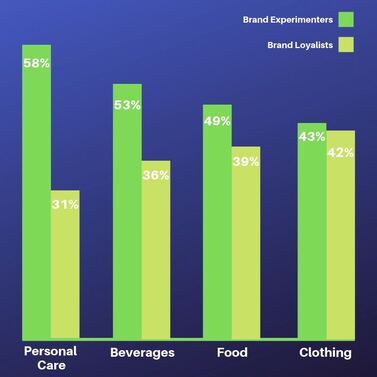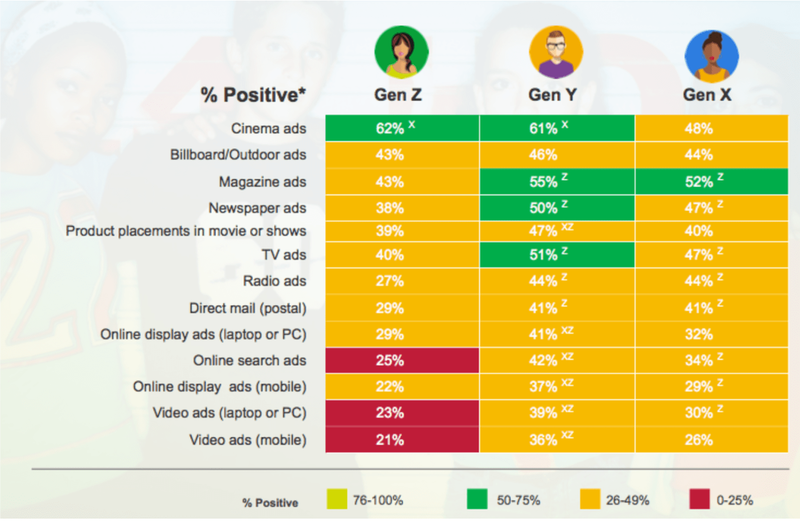
This tendency gives less well-established brands the opportunity to pitch their values and products/services. If well received, they will gain a piece of the students’ mind-share. This is crucial real estate for brands to capture, since it is the beginning stages of the students developing brand loyalty towards the associated offering. Over time, this affinity grows stronger through repeated positive interactions, ultimately resulting in a customer segment with a rather high residual life-time value.
But the key question in this lucrative formula remains unanswered. How exactly does one market to this highly particular Gen Z audience? What strategies and channels are the most effective in converting these “brand experimenters” to “brand loyalist”?
Traditional Marketing Strategies
Recent research has consistently shown that what worked for previous generations doesn’t work quite as well for Gen Z (Image 2). Everything from billboard ads to online display ads are less well-received compared to their older counterparts. The largest disparity lies in online search and video ads, where the drop-off is even more drastic.

Experiential Marketing – Sponsored Events
The Gen Z audience presents unique challenges for marketing teams. They need to keep up with shifting preferences or risk losing out on this audience. Most notably, Gen Z consumers prefer realistic to idealistic messages. They like to be engaged by “real people.” A particular strategy that allows a brand to do just that is by employing various forms of experiential marketing.
College campuses are an ideal stomping ground for experiential initiatives. Densely populated, these hubs are full of students willing and ready to try new things. Everything from on-campus tabling activations to fun, interactive booths allows brands to create the important connection that is missing in traditional advertising.
If done properly, the results are quite favorable in eliciting the proper response. For example, 51% of college students who were personally advertised to on campus ended up researching the products advertised. 46% of students who received a sample ended up purchasing the product. 80% of people who attended a sponsored event were more confident in purchasing the featured products after viewing live demonstrations and receiving free samples (U.S Bureau of Labor). And most impressively, 98% of all attendees intend to purchase after attending an experiential marketing event.
Experiential Marketing – Brand Ambassador Programs
Focusing on experiential marketing – in the form of sponsored events and brand ambassador programs – is statistically proven to be excellent alternative methods to capture the Gen-Z audience. Such campaigns engage the young audience and makes the messaging realistic. When marketing, it is important to understand Gen Z consumers and the lifecycle they undergo throughout their consumer journey. At Evolvez, we specialize in helping brands target this market by employing and activating brand ambassadors on college campuses all across the country.

